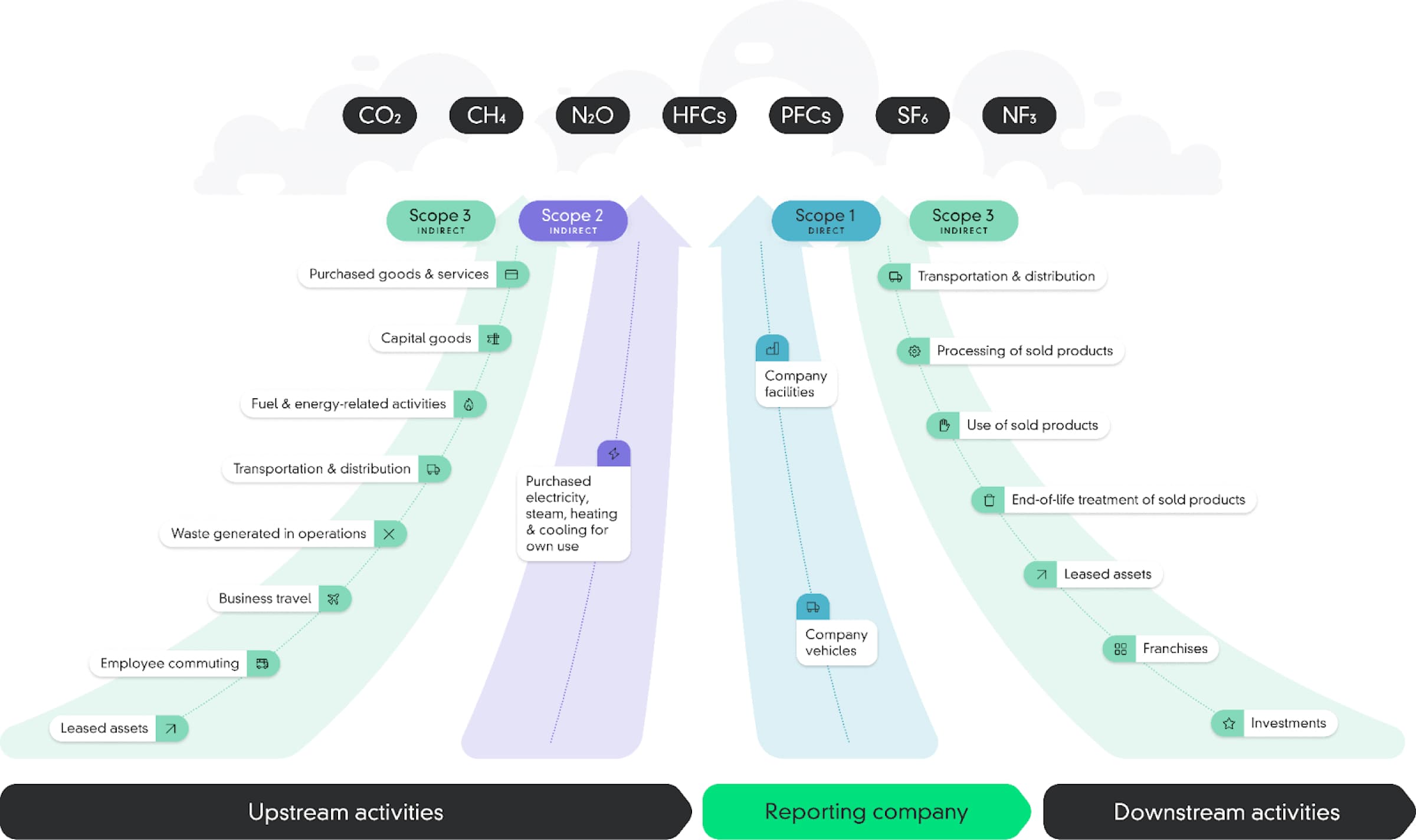In the quest for sustainability, businesses increasingly rely on three pivotal roles: the Sustainability CFO, Carbon Accountant, and Sustainability Consultant. Each plays a unique role in integrating environmental, social, and governance (ESG) factors into business operations, helping companies in New Zealand and Australia meet regulatory requirements and reduce their carbon footprints. While the Sustainability CFO leads from a financial perspective, ensuring that sustainability aligns with long-term value creation, the Carbon Accountant specializes in calculating and managing emissions. The Sustainability Consultant provides strategic advice to improve overall sustainability performance. Together, they form a cohesive team driving sustainable growth.
Introduction: The Rise of Sustainability in Business
As businesses across New Zealand and Australia face increasing pressure to embrace sustainability, three roles have emerged as essential to their success: the Sustainability CFO, the Carbon Accountant, and the Sustainability Consultant. These positions, though distinct, are interlinked in their goal of helping organizations navigate the complex terrain of environmental responsibility while maintaining financial viability. For businesses targeting growth in the low-carbon economy, understanding the scope and impact of these roles is key.
The Sustainability CFO: Integrating ESG into Financial Strategy
Traditionally, the Chief Financial Officer (CFO) has been seen as a guardian of financial stability, but the role has expanded to include sustainability as a core component. A Sustainability CFO is tasked with embedding ESG factors into a company’s overall financial strategy, ensuring that sustainability initiatives drive long-term value.
Key Responsibilities of a Sustainability CFO:
- Strategic Integration: The Sustainability CFO ensures that sustainability goals align with the company’s financial objectives, embedding ESG considerations into the strategic roadmap. This means that efforts to reduce carbon footprints or improve resource efficiency are closely tied to the company’s long-term profitability.
- Financial Oversight of ESG: They manage the financial performance of sustainability initiatives, evaluating their impact on the company’s bottom line and capital expenditures. For example, investment in renewable energy or energy-efficient technologies must be scrutinized for return on investment (ROI).
- Risk Management: In the modern business environment, climate change presents significant risks—from fluctuating resource prices to new regulations. The Sustainability CFO incorporates these risks into the company’s overall risk management framework, helping the organization mitigate the financial impacts of ESG-related challenges.
- Investor Relations: As investors increasingly demand transparency in ESG performance, the Sustainability CFO plays a crucial role in communicating how the company is managing its sustainability efforts. This is particularly important in securing green financing and building trust with shareholders.
- Compliance and Reporting: With regulations like the Corporate Sustainability Reporting Directive (CSRD), the CFO must ensure the company’s sustainability reports meet external audit standards and are integrated with traditional financial reports.
Skills and Qualifications:
- Strong financial and strategic acumen
- Deep understanding of ESG metrics and reporting standards
- Ability to drive organizational change and translate sustainability into financial terms
For business owners in New Zealand and Australia, hiring or training a Sustainability CFO can be a game-changer. By integrating ESG into the core of their financial strategies, businesses can not only comply with evolving regulations but also seize opportunities for innovation and cost savings.
The Carbon Accountant: Measuring and Managing Emissions
As governments and industries push for carbon neutrality, the Carbon Accountant has become a vital role for organizations looking to accurately measure, report, and reduce their greenhouse gas emissions. For businesses with high emissions, such as manufacturing or logistics, this role is critical.
Key Responsibilities of a Carbon Accountant:
- Data Collection: Carbon Accountants gather detailed data on all activities that contribute to the company’s carbon emissions, from energy usage to supply chain activities. This is often the first step in creating a baseline for emission reduction strategies.
- Emissions Calculation: Using established frameworks like the Greenhouse Gas Protocol, Carbon Accountants calculate the company’s carbon footprint, covering Scope 1, 2, and sometimes Scope 3 emissions. This involves analyzing everything from direct emissions to those generated indirectly through supply chains or employee commuting.
- Carbon Reporting: They prepare detailed reports for stakeholders, regulatory bodies, and internal use. These reports are critical for transparency, particularly for companies required to disclose their emissions or those seeking green certification.
- Reduction Strategy Development: Beyond measuring emissions, Carbon Accountants help identify the major contributors to a company’s carbon footprint and recommend strategies to reduce them, such as switching to renewable energy or optimizing logistics to reduce transportation emissions.
- Compliance Management: Carbon Accountants ensure that the company adheres to international, national, and industry-specific carbon reporting regulations.
Skills and Qualifications:
- Proficiency in carbon accounting methodologies (e.g., GHG Protocol)
- Strong analytical skills for processing and managing emissions data
- Knowledge of environmental regulations and compliance standards
In regions like New Zealand and Australia, where industries such as agriculture, manufacturing, and transport face growing scrutiny over emissions, Carbon Accountants offer invaluable expertise. These professionals ensure that companies can accurately track their carbon footprints and meet regulatory demands, paving the way for emissions reduction initiatives.
The Sustainability Consultant: Strategic Advisors on Environmental Performance
Sustainability Consultants play a more flexible, advisory role, often brought in as external experts to help businesses improve their overall sustainability performance. Their broad scope of work means they can address a wide range of sustainability issues, from energy efficiency to waste reduction.
Key Responsibilities of a Sustainability Consultant:
- Sustainability Assessments: Consultants begin by conducting a thorough evaluation of the company’s current sustainability practices. This includes an analysis of energy usage, waste management, and supply chain efficiency, giving a full picture of the company’s environmental impact.
- Strategy Development: Based on the assessment, the consultant works with the business to create an actionable sustainability strategy. This might involve setting targets for emissions reduction, improving resource efficiency, or achieving certifications like ISO 14001.
- Implementation Support: A good consultant doesn’t just hand over a report—they help ensure that sustainability initiatives are put into action across different departments. This might include training staff or helping departments collaborate on cross-functional sustainability projects.
- Reporting and Communication: Sustainability Consultants often assist businesses in preparing formal sustainability reports, which are increasingly required by investors and regulatory bodies. They also help communicate these efforts to external stakeholders, including customers and partners.
- Training and Education: Consultants frequently provide training to staff on best practices in sustainability, helping foster a company-wide culture of environmental responsibility.
Skills and Qualifications:
- Expertise in environmental science, policy, or related fields
- Strong problem-solving and project management skills
- Excellent communication for stakeholder engagement and education
For New Zealand and Australian businesses looking to launch or improve sustainability programs, working with a Sustainability Consultant can be a cost-effective way to access deep expertise and develop a roadmap for success.
Comparing the Roles: Scope, Focus, and Influence
Though each of these roles is focused on sustainability, they differ in scope and responsibilities:
Scope:
- The Sustainability CFO has the broadest scope, overseeing how sustainability integrates with the entire financial strategy.
- Carbon Accountants are highly specialized, focusing on measuring and managing carbon emissions.
- Sustainability Consultants often focus on specific projects, offering advice and implementation support on various sustainability issues.
Position in the Organization:
- Sustainability CFOs are part of the C-suite and influence high-level decision-making.
- Carbon Accountants may sit within the finance or sustainability departments.
- Sustainability Consultants are typically external advisors but can be embedded within organizations on a project basis.
Focus:
- Sustainability CFOs balance financial performance with sustainability goals, ensuring ESG initiatives drive value.
- Carbon Accountants zero in on emissions, ensuring accurate reporting and effective reduction strategies.
- Sustainability Consultants provide strategic oversight across all aspects of sustainability, from energy to supply chains.
Conclusion: Driving Sustainable Growth with the Right Expertise
The roles of Sustainability CFO, Carbon Accountant, and Sustainability Consultant are essential for businesses navigating the complex demands of the low-carbon economy. As New Zealand and Australia set increasingly stringent regulations for emissions and sustainability reporting, businesses must engage the right expertise to ensure compliance and position themselves for long-term success. By leveraging these roles, companies can reduce their environmental impact while capturing new opportunities for innovation and growth.



